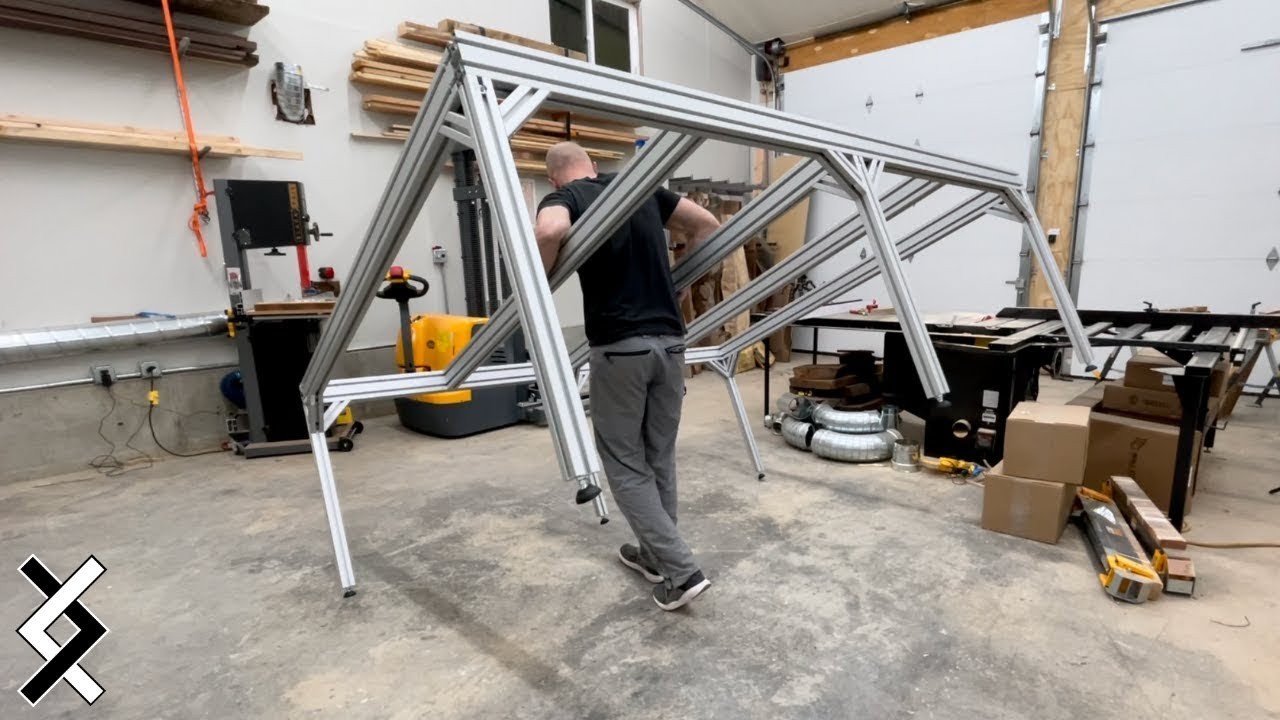
Aluminium workbenches have become increasingly popular in various professional and hobbyist settings. Their combination of lightweight durability, resistance to corrosion, and versatility makes them an excellent choice for a wide range of applications. Here, we explore some of the best uses for aluminium workbenches and why they are a superior choice in these environments.
- Industrial and Manufacturing Workspaces
In industrial settings, workbenches need to withstand heavy use and support substantial weights. Aluminium workbenches are ideal due to their high strength-to-weight ratio. They can handle heavy machinery, tools, and materials without the risk of bending or warping. Moreover, aluminium’s resistance to rust and corrosion ensures longevity, even in environments exposed to oils, chemicals, and other harsh substances. This makes them particularly suitable for assembly lines, machining processes, and quality control stations.
- Laboratories
In laboratories, cleanliness and resistance to contamination are paramount. Aluminium workbenches are non-porous, making them easy to clean and disinfect. Their smooth surfaces do not harbor bacteria or chemicals, which is crucial in both medical and research laboratories. Additionally, aluminium is non-reactive with many chemicals, providing a safe surface for experiments and analyses. The lightweight nature of aluminium also allows for easy reconfiguration of lab spaces as needed.
- Electronics and Technical Repairs
For electronics and technical repair work, static electricity is a significant concern. Aluminium workbenches can be designed with static dissipative properties, making them safe for handling sensitive electronic components. They provide a stable, non-conductive surface, minimizing the risk of damage to delicate circuits and devices. The robust construction of these workbenches supports various repair activities, from soldering to testing and assembly.
- Automotive Workshops
Automotive professionals benefit from aluminium workbenches due to their durability and ability to withstand heavy, greasy, and dirty conditions. These workbenches support a wide range of automotive tasks, including engine repairs, part replacements, and custom modifications. The ease of cleaning aluminium surfaces ensures that grease and grime do not accumulate, maintaining a professional and efficient workspace.
- Woodworking and Crafting
Woodworkers and crafters often require a sturdy and reliable surface to handle intricate tasks. Aluminium workbenches provide the necessary stability for precise cuts, sanding, and assembly. They can also support the weight of heavy woodworking tools and materials. Additionally, the smooth, flat surface of an aluminium workbench is ideal for detailed crafting projects, ensuring accuracy and consistency.
- Home Workshops
For the DIY enthusiast, an aluminium workbench offers a versatile and durable solution for a variety of projects. From home repairs to hobbyist endeavors, these workbenches provide a reliable workspace that can handle different tools and materials. Their lightweight nature allows for easy relocation within the workshop, adapting to different tasks and projects.
- Food Processing and Culinary Applications
In the food industry, hygiene is crucial. Aluminium workbenches are perfect for food processing and preparation areas due to their easy-to-clean, non-porous surfaces. They resist staining and do not absorb food particles or liquids, ensuring a sanitary environment. Additionally, aluminium’s durability supports the weight and impact of food processing equipment.
